
What’s so hard about coming home?
By Sue Eenigenburg
We recently returned to our home country after serving overseas for 13 years. My husband and I had taken multiple trips back to the States and been around other Americans as we served across cultures. But reentry was still hard. Let me share a few of my challenges that might help explain why.
During our first few months back, we tried a new coffee shop not too far from our home as we missed the lovely outdoor cafes and amazing coffee we had enjoyed in our host country. We walked in, excited to check it out. A lady came up to me and asked, “Would you please take a picture of me and my friends?” Of course, I was happy to. But that was my second thought. My first thought, “I used to have friends, too,” jolted me. I feel lonely.
It isn’t that I don’t have friends. We lived here before. I know people. They know me. But a lot has changed. We’ve changed; we are older and out of touch with what has happened while we were gone. My ministry role has changed as well. For 38 years, since I first began in missions, I’d worked closely with a team. Now I don’t have a team, and I haven’t been able to find that same depth, that visionary heart-to-heart comradery. I have doubts I will ever find that again.
I don’t know how much to share. At a church get-together, the leader asked each of us to share something interesting about ourselves. I have an abundance of interesting stories. I’ve been on a plane making a spiral landing to avoid potshots by extremists. I walked around an area where they hadn’t cleared all the landmines. (I didn’t know this at the time.) On a train, I’ve had toilet paper that I tried to flush fly upward, and I caught it in midair. I’ve walked on a dirt road at night via cell phone light and encountered a wild boar nearby. But these stories are so odd that I don’t know how people would receive them. I wondered how strange they would make me seem to others in the room, or maybe how much stranger sharing them would make me feel in a group where I already felt disconnected.
I am uncertain who wants to hear about me and our ministry. People seem glad we are back, but not many have asked about what we’ve been up to and how things have been going since we’ve been back. It’s like they think we must be glad to be home. And we are. But it doesn’t quite feel like home. Yet. (I made myself add that word as it gives me hope.)
My thoughts are often more globally focused than local. During a visit to a church, we heard the pastor speak of another pastor who had served in Lebanon for 30 years. I began to wonder, “Was he in Beirut? With our connections in that part of the world, do we know him? I wonder if we can talk with the pastor afterward to see if we can find out more.” As the pastor continued, I realized he was talking about a different Lebanon: a city in Pennsylvania about 30 miles away from where we were.
In the year and a half we’ve been back, I’ve discovered four things that have helped me in this reentry process. I’ve also thought of ways a church member might be of help to global workers as they adjust. Below are some suggestions for both, remembering there is no quick fix and that it is indeed a process.
1. Find a coach/Be a listener.
For Workers
I found a coach to help me verbally process challenges. I knew about some of them, but others surprised me. I didn’t expect to lose my sense of identity. I’d been in overseas ministry a long time. I am still a global worker, but not serving overseas. When I try to sign up for mission events, I don’t seem to fit any of the categories. Member care? Administration? Training? Well, I do a bit of all those. Also, because I am older, people often assume I am retired. Churches sometimes decrease or stop supporting older missionaries, which is understandable; there are younger people with fresh vision and zealous energy who are ready to serve overseas. But our support needs haven’t decreased. Being able to talk about these types of things with someone safe helped me find solid footing again.
For Churches
Understand that reentry is not easy, and different cross-cultural workers respond and adjust in different ways. It could depend on how long they’ve been away, where they’ve served, how much time they have spent preparing for the move. Listening is one of the best gifts any church member or friend can give to those who come home, but don’t yet feel like it is home.
2. Connect with someone who’s been there./Offer help.
For Workers
I searched for another cross-cultural worker with reentry experience to mentor me and found one who had moved back to the States about 10 years ago. We set up a call, and she knew exactly what I was going through. We decided to chat monthly and discovered that we only live three hours away from each other, so sometimes we meet halfway to talk face to face. She understands. She is helping me learn how to manage reentry struggles.
For Churches
Be aware of those in your church who have experienced reentry and who would understand the challenges newly returned workers are facing. Or maybe you have trained coaches, mentors or counselors in your church who could come alongside the worker whose body has arrived, but whose heart is confused about where home is. Offering help, rather than waiting for the global worker to ask for help, is critical.
3. Accept and pursue opportunities to connect./Practice hospitality.
For Workers
I take advantage of invitations. One couple invited us over for dinner. We then invited them to our place, and we began to rebuild our friendship. Another church friend came up to me last month and said, “Let’s go out for coffee. I’d love to hear more about your ministry and how things have been going since you’ve been back.” Words cannot describe how much that meant to me. I am looking forward to not only sharing my heart but listening to hers as well.
Looking back, one mistake I made is being too self-focused. I didn’t initiate many conversations with people in our church to see how they were doing and what has been happening in their lives. I didn’t give them what I was longing for from them. I regret that. I’m not sure why I didn’t pursue them. One possibility I’ve considered is that I was already using so much emotional energy settling in that I had little left over to take the lead in anything more.
For Churches
Practice hospitality. Invite a returning worker over to your home or out for a meal. Feeling off kilter and emotionally drained makes it hard for them to take the initiative. If he or she does invite you and the timing isn’t convenient, find a time that works. Don’t give up! Being in others’ homes helps us feel more at home.
4. Put yourself in each other’s shoes.
For Workers and Churches Alike
Sometimes people have the mistaken idea that we are somehow special and not the normal people we are. This may make them hesitant to start a conversation. They might not know how much to share of their lives or what to ask us about ours. It is possible that it didn’t occur to them that reentry would be challenging. Or perhaps they once asked a global worker what it was like, and he or she talked too much?
Returning cross-cultural workers often feel overwhelmed with all the changes. Many church members don’t know how overwhelmed we feel with even simple things—like going to the grocery store and having so many options that we cry and go home empty-handed. The more you can help returning workers feel cared for and connected, the more it will feel like we've come home.
Now, as much as I want to encourage churches and friends to understand that reentry is difficult, I recognize that I am a part of my problem. So, I challenge myself to be the person I want other people to be for me. I need to seek people out, invest in relationships and listen to all that is in their hearts. They have struggles I cannot see. They could be feeling lonely like me. Are they new to the area and consider themselves outsiders, too? I cannot continue to seek interest and concern from others when I am not showing the same to them.
Reading Paul’s words in Philippians 2:3-4 was convicting and instructive: “Do nothing out of selfish ambition or vain conceit. Rather, in humility value others above yourselves, not looking to your own interests but each of you to the interests of the others.” (NIV)
Cross-cultural worker or not, we all need people in our lives who care enough to show interest in us. We connect with people when we can share who we are, where we’ve been and what we do. As God’s family, brothers and sisters in Christ, we weren’t made to live isolated lives. We must love and look out for one another in our day-to-day lives—not just when returning home.









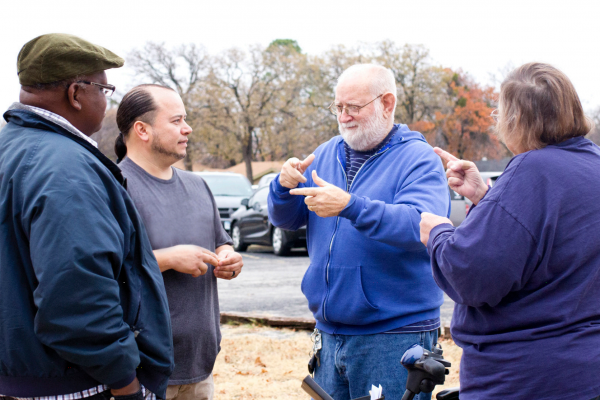




































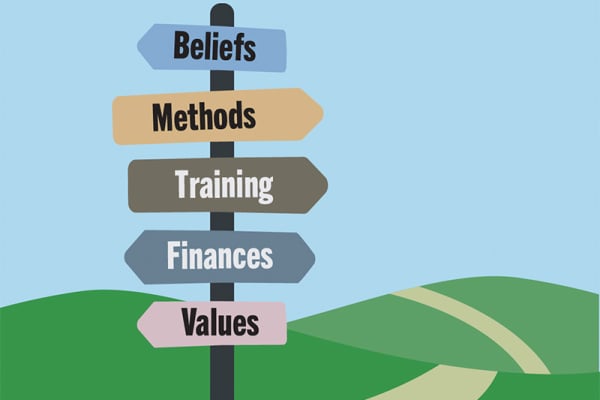








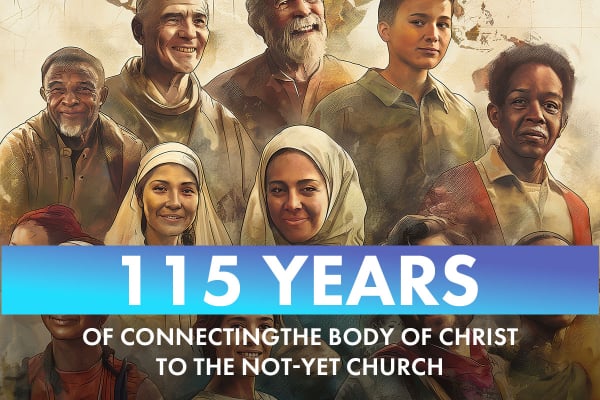
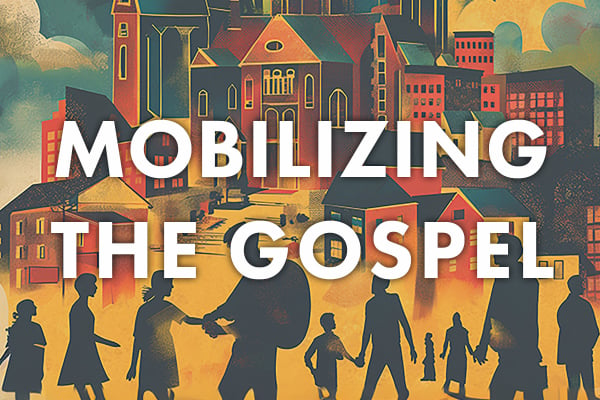

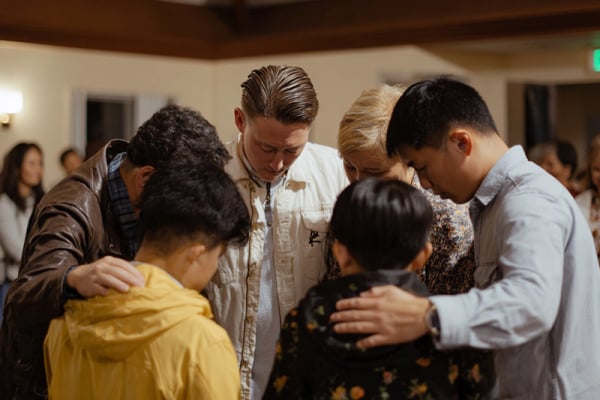
_1654032461_600x400.jpg)


